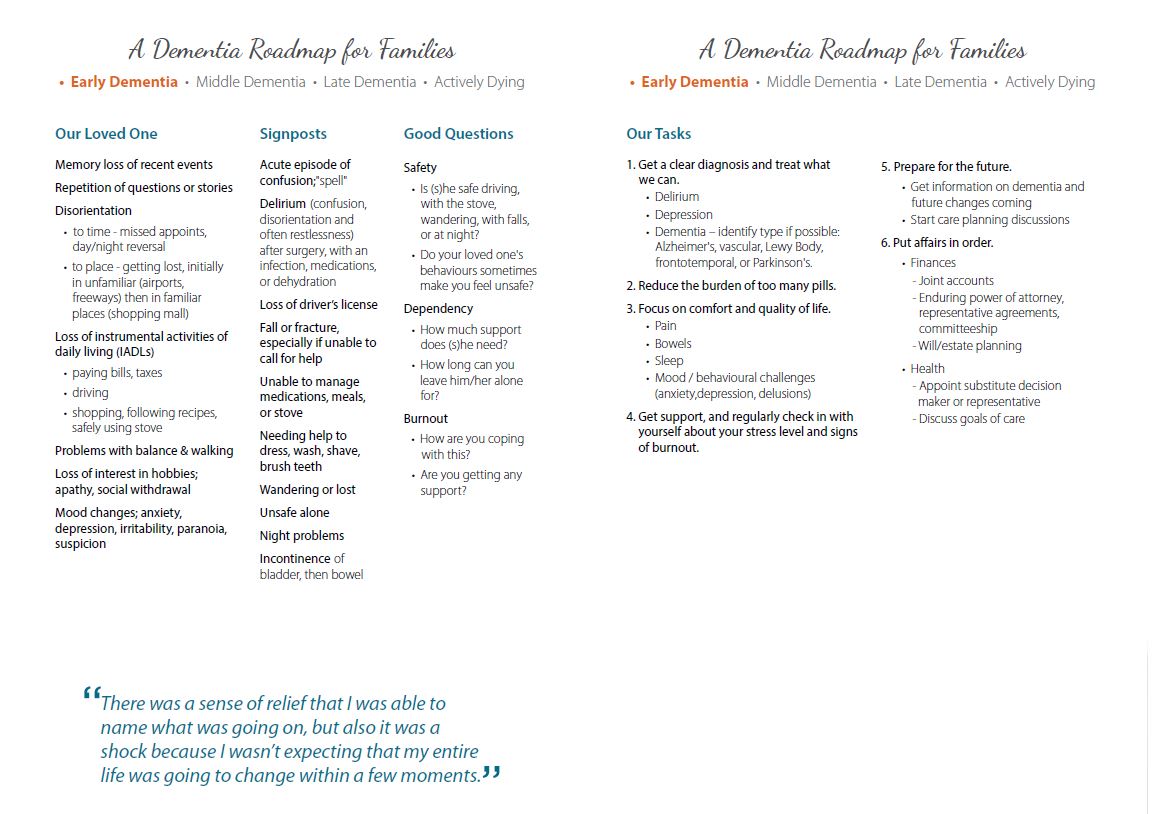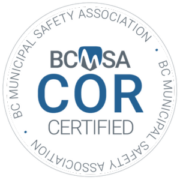A Dementia Roadmap for Families
Early Dementia
Dear Reader,
Known as the disease of a thousand goodbyes, dementia affects
about 1 in 7 Canadians over the age of 70 (alzheimers.org). While
different kinds of dementia vary in their initial presentation and rate
of progression, there are features of the dementia journey common
to all.
This brochure is a basic roadmap of the territory, to help
families orient themselves on the journey they are traveling, and see
what’s coming farther along the road.
The dementia journey can be roughly divided into early, middle, and
late stages, then actively dying. This guide outlines the features of
each stage, the signposts that tell you where you are on this road,
and what may be coming up next. Included are questions that can
help you clarify where you are, and suggestions about things we
can do as a family and care team to give your loved one the best
possible quality of life where they are right now.
By reflecting together on how quickly your loved one is changing,
we can get an idea how long this journey might be. Our trajectory,
or how fast things are changing, is the best predictor of how fast
things may progress in the future. In the early stages, people often
change slowly, from year to year. In the middle and especially later
stages things start changing faster. When you find that your loved
one has changed quite a bit in the last few months, we are likely
approaching the last months or perhaps year of the journey. As we
transition to actively dying, things change more quickly, from week
to week, and then day to day in the last days.
At all stages of the journey we can focus on providing comfort and
improving quality of life, working with what we are still able to do
and things we can still enjoy together.
Please be gentle with yourself as you read through this roadmap.
Loving someone with dementia is a bittersweet journey, that asks
a great deal of us as caregivers. All of us will feel guilty; about not
giving enough, or losing our patience, or dealing with the inevitable
feelings of anger and frustration. We need to give ourselves time and
permission to grieve, and adjust to all the losses and changes. We
need to acknowledge all the things we are doing, and give ourselves
permission to care for ourselves too.
Your loved one knows at some level the toll their illness is taking on
you, and doesn’t want to be a burden on you. More than anything
else, they want you to be happy, and care for yourself, both now and
when they’re gone.
Please give them the gift of being kind to yourself.
Read the entire “Dementia Roadmap for Families” Brochure – PDF
Brochure provided by:
Dr. Trevor Janz
Residential Care Medical Director
Interior Health East








